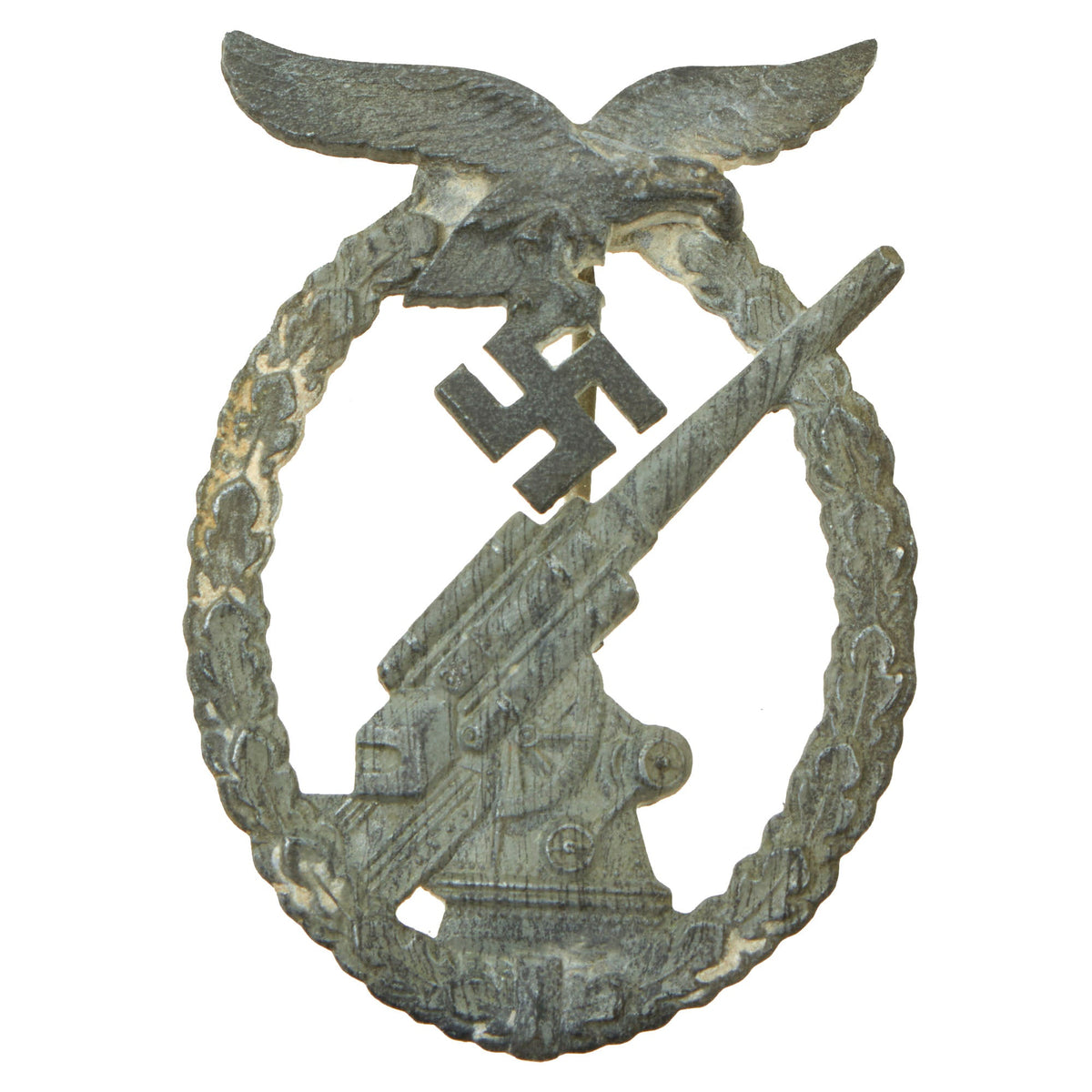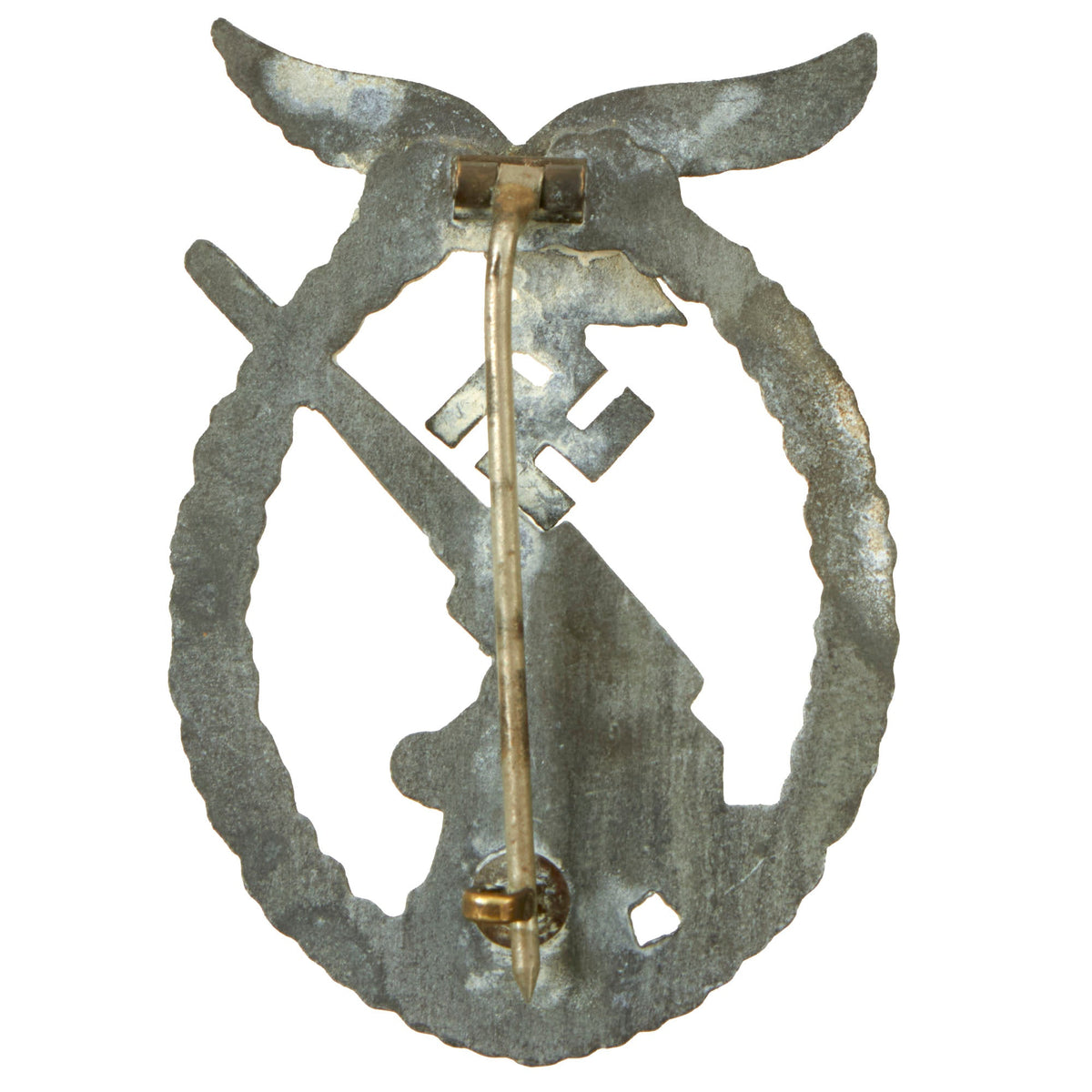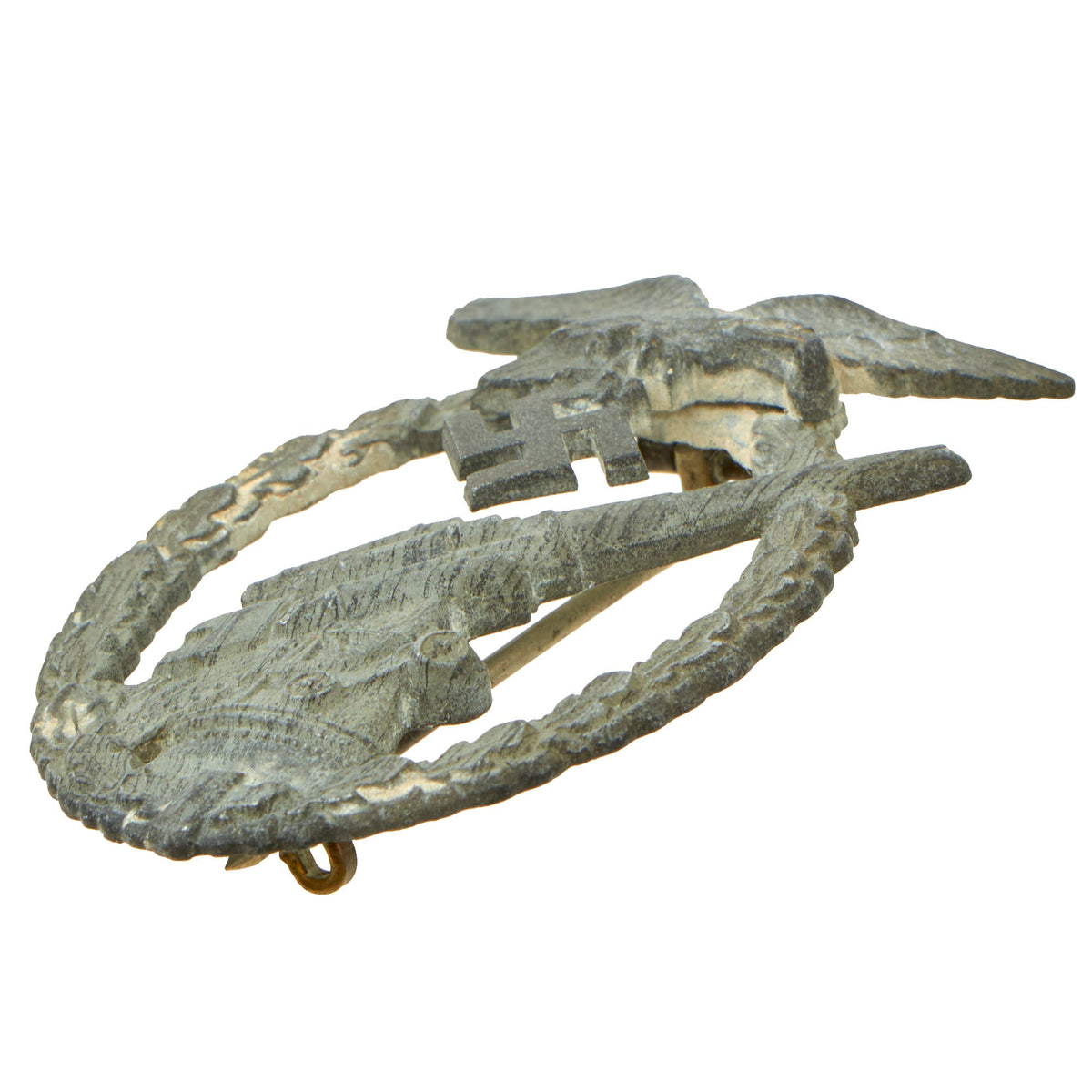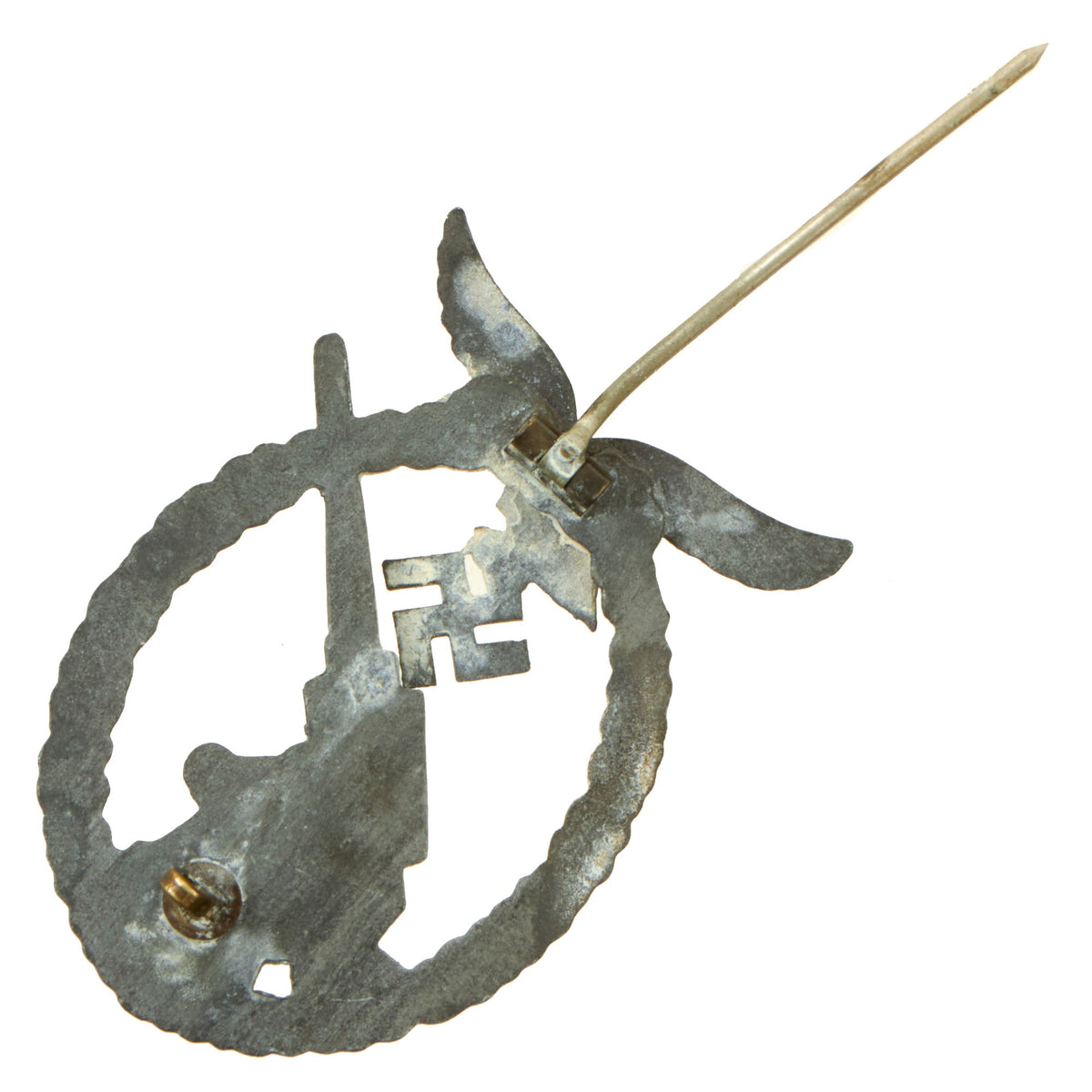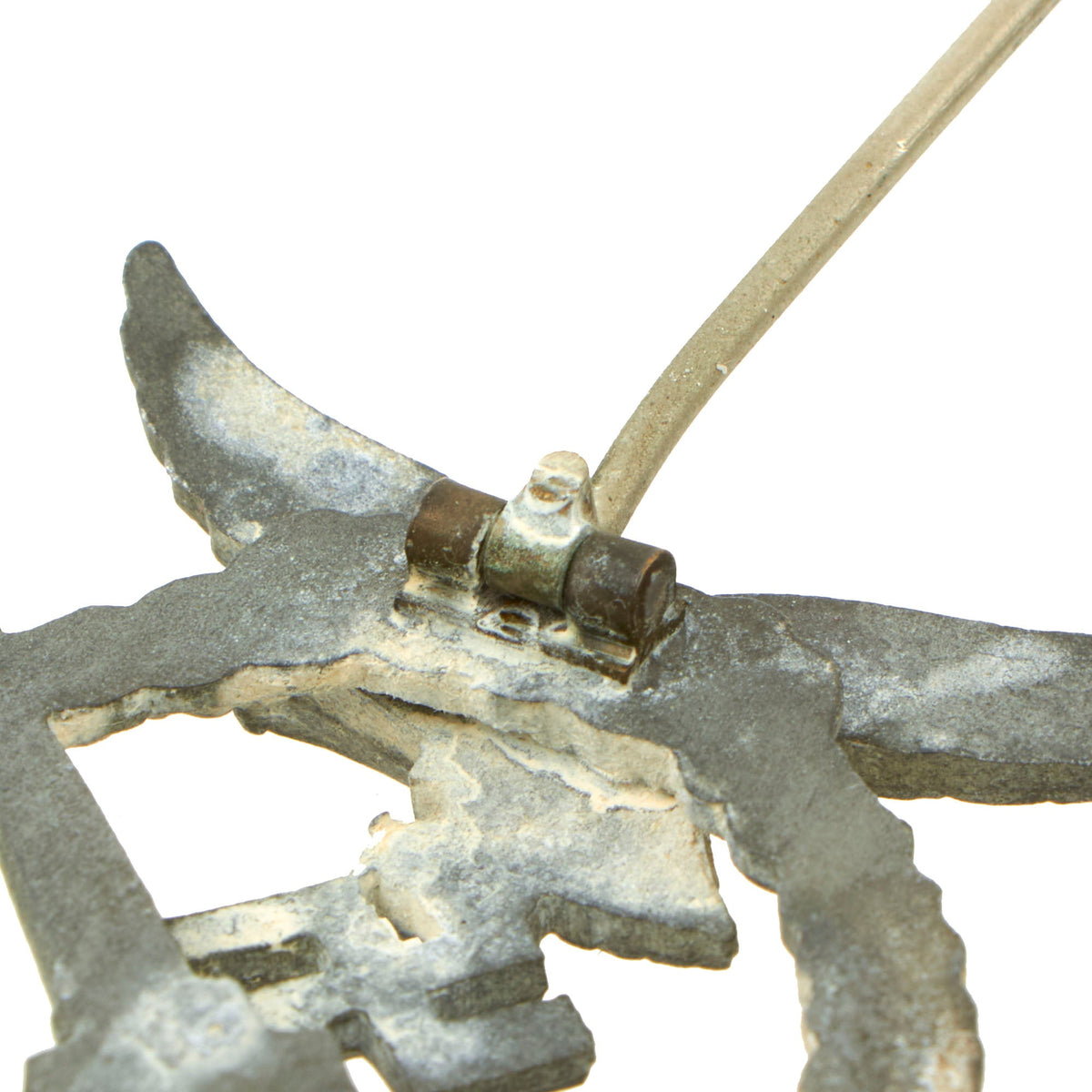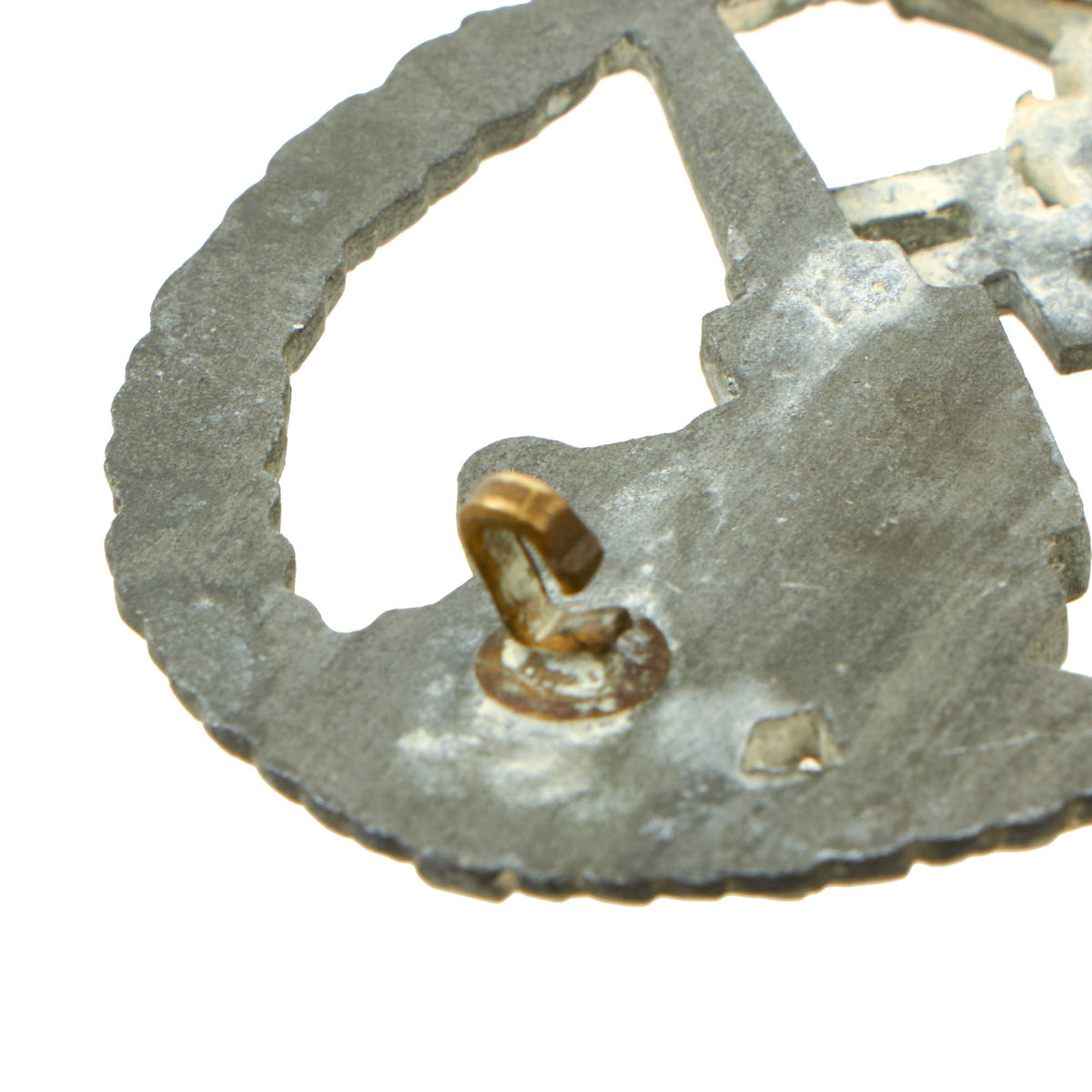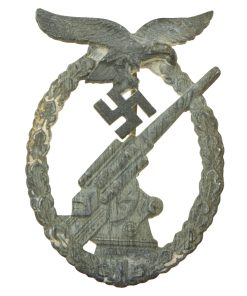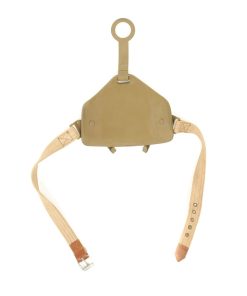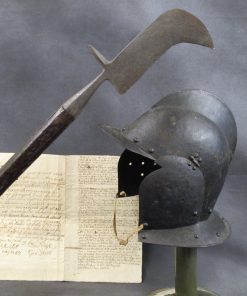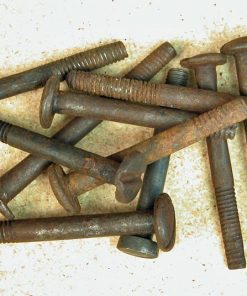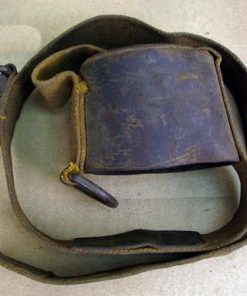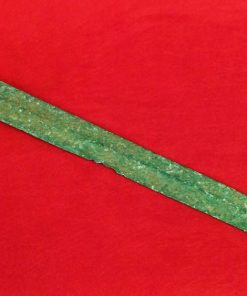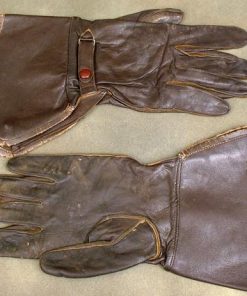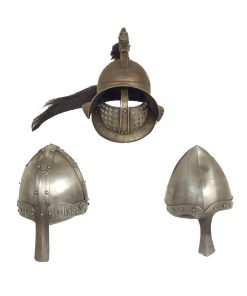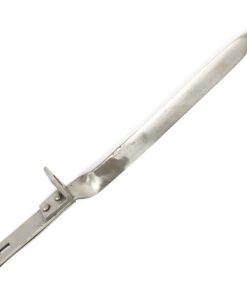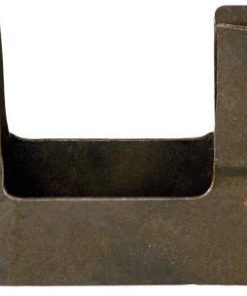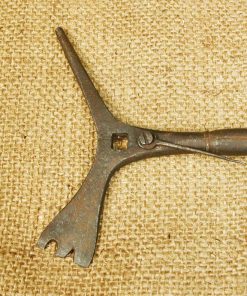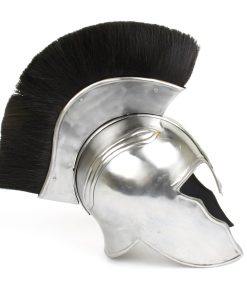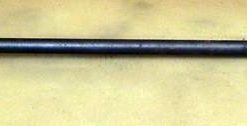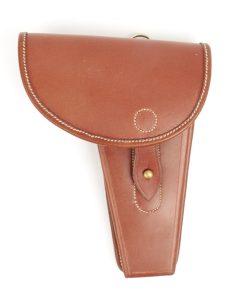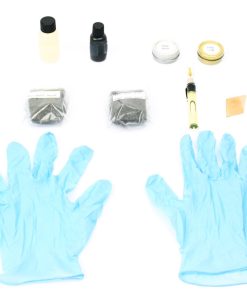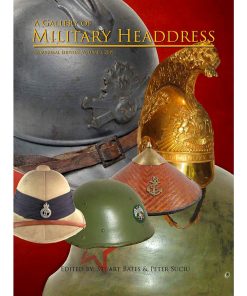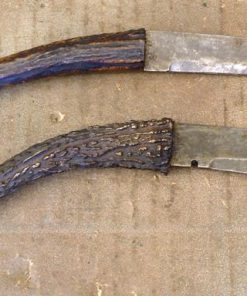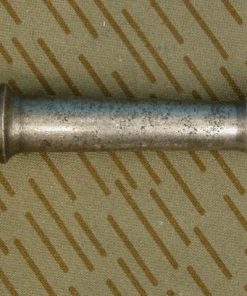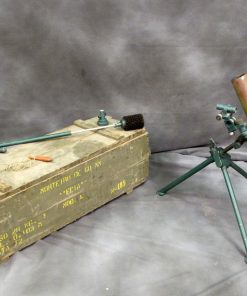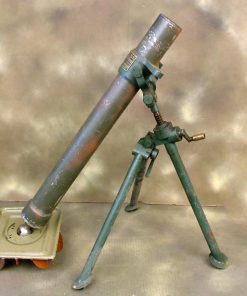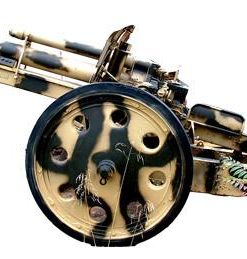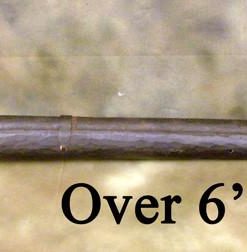Original German WWII Luftwaffe Anti-Aircraft Flak Battle Badge by Steinhauer & Lück Original Items
$ 250,00 $ 100,00
Original Items: Only One Available. This is a lovely Luftwaffe Anti-Aircraft Flak Battle Badge (Flak-Kampfabzeichen der Luftwaffe). It is a textbook example, consisting of an oak leaf wreath, with a ribbon on the bottom, and a Luftwaffe eagle on the top of the badge, clutching a swas, and a Flak 88 facing towards the top right, with the barrel extending past the badge. It looks to be made of later war zinc alloy which was originally silver frosted, and is a solid back design, with a nice slightly vaulted contour.
The reverse is a plain scoop back design, and does not have a maker mark on it. However the distinctive “Vertical Crimp Hinge” on the securing pin was only used by one maker: Steinhauer & Lück of Lüdenscheid, a city with large garment accessory industry. The pin catch is also the correct type, and comparison to other examples shows an exact match. Measuring 2.4 inches (61 mm) x 1.7 inches (43 mm); offered in very good condition. There is no maker marked on the back of the badge, but that is not uncommon for later war production. Close examination of the style may be able to determine the maker.
The details are still all there on this badge, with minimal wear, though it has lost almost all of the original silver wash, with some of the recessed areas showing a bit remaining, though it has oxidized and turned white.
A very nice example of a hard to find badge, ready to display!
Anti-Aircraft Flak Battle Badge (German: Flak-Kampfabzeichen der Luftwaffe) was a World War II military decoration of NSDAP Germany. It was instituted on 10 January 1941 by Hermann Göring in his capacity as the Commander in Chief of the Luftwaffe. The badge was awarded to servicemen of the Flak artillery who distinguished themselves in action against enemy aerial or ground attacks.
Designed by Wilhelm Ernst Peekhaus, the badge was of single piece construction with a pin back and clasp. It was made in one grade; it had a Luftwaffe eagle at the top, and an oak leaf wreath around the outside rim. In the middle was an 88 mm flak gun with the barrel facing upwards to the right. The badge was worn on the lower part of the left breast pocket of the service tunic, underneath the 1st class Iron Cross if awarded.
It was awarded after the accumulation of 16 points or could also be awarded outside of the points system for an act of merit or bravery in the performance of air defense duties. If the candidates’ battery brought down an enemy aircraft then the crew members were awarded four points. If two batteries were involved then each battery received two points. Both officers and crews were eligible for the badge. The commanding officer for an anti-aircraft unit was eligible for the badge once half of his men also qualified for the badge. The award was also available to searchlight crews and sound-locator crews. Searchlight and sound-locator crews which assisted in the action by detection of aircraft could be awarded one point each. The German Army had a similar badge, however, earning points towards it were only awarded for the downing of aircraft and not for ground targets. Prior to the introduction of the Ground Assault Badge of the Luftwaffe, this badge could be awarded to a serviceman for the participation in three separate combat operations against tanks, bunkers or ships.
Fast Shipping with Professional Packaging
Thanks to our longstanding association with UPS FedEx DHL, and other major international carriers, we are able to provide a range of shipping options. Our warehouse staff is expertly trained and will wrap your products according to our exact and precise specifications. Prior to shipping, your goods will be thoroughly examined and securely secured. We ship to thousands clients each day across multiple countries. This shows how we're dedicated to be the largest retailer on the internet. Warehouses and distribution centres can be located throughout Europe as well as the USA.
Note: Orders with more than one item will be assigned a processing date depending on the item.
Before shipping before shipping, we'll conduct a thorough inspection of the items you have ordered. Today, the majority of orders will be delivered within 48 hours. The delivery time will be between 3-7 days.
Returns
The stock is dynamic and we cannot completely manage it because multiple stakeholders are involved, including our factory and warehouse. So the actual stock may alter at any time. It's possible that you may not receive your order once the order has been made.
Our policy is valid for a period of 30 days. If you don't receive the product within 30 days, we are not able to issue a refund or an exchange.
You can only return an item if it is unused and in the same state as the day you received it. You must have the item in its original packaging.
Related products
Uncategorized
Uncategorized
Armored Burgonet Helmet & Polearm from Scottish Castle Leith Hall Circa 1700 Original Items
Uncategorized
Uncategorized
Angolan Rebel 1970s era 60mm Inert Display Mortar from Angolan Civil War Original Items
Uncategorized
Uncategorized
Uncategorized
Uncategorized
Uncategorized
Uncategorized
Uncategorized
Uncategorized
Armoured Fighting Vehicles of the World: AFVs of World War One (Hardcover Book) New Made Items
Uncategorized
Uncategorized
Uncategorized
Uncategorized
Band of Brothers ORIGINAL GERMAN WWII Le. F.H. 18 10.5cm ARTILLERY PIECE Original Items
Uncategorized
Uncategorized
